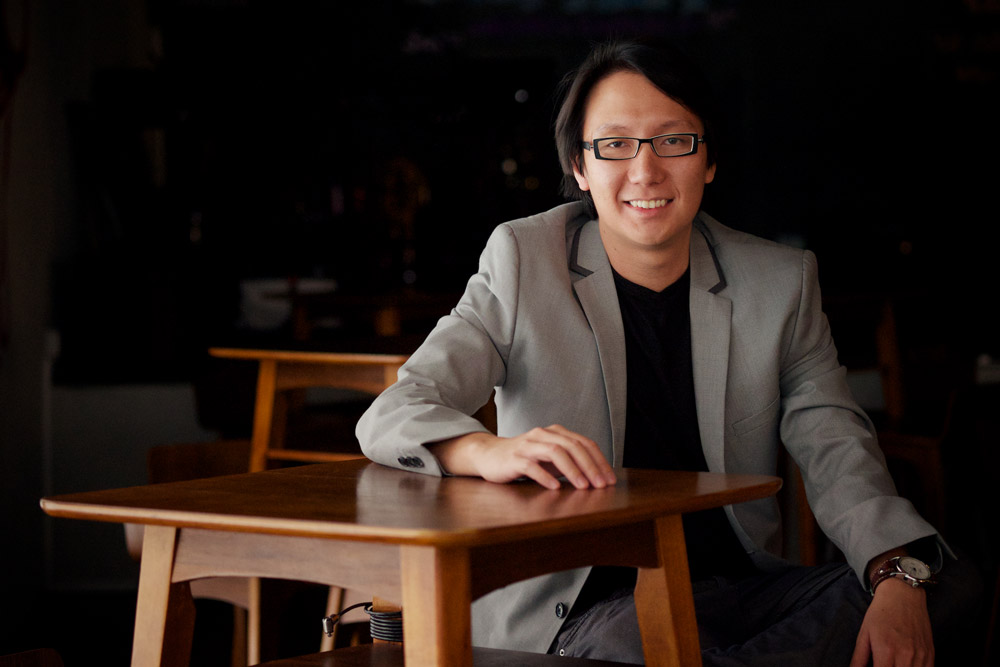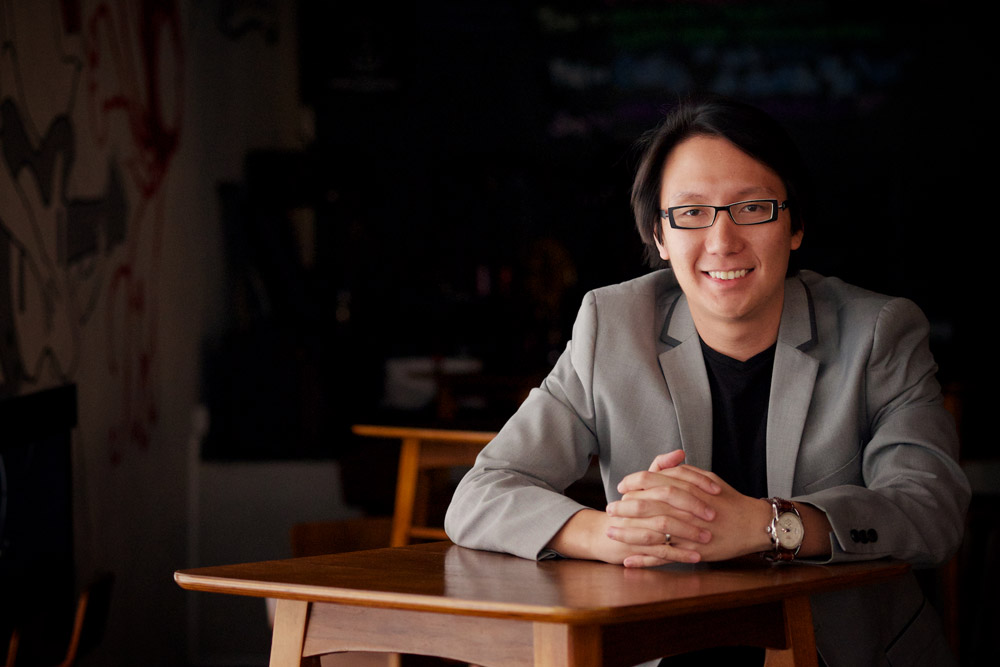Edward Chia of Timbre, The Venue with a Social Mission
 Thirsty for JUICE content? Quench your cravings on our Instagram, TikTok and WhatsApp
Thirsty for JUICE content? Quench your cravings on our Instagram, TikTok and WhatsApp

Before it was rebranded as The Row, Asian Heritage Row used to be an area for KLites to be introduced to some of the best, albeit unusual, characters our city had to offer. From drug dealers to gangsters to silly drunkards — there was never a night spent there that wasn’t worthy of a controversial story. Since then though, it’s become a creative space for the community to gather at — whether as a consumer or a retailer, everyone has something to offer at The Row. Take Timbre KL for example — it was recently added as one of the tenants in the newly opened North Block. The venue is a restaurant that aims to cater the best F&B and live music experience to our city — a statement we’ve heard one too many times before. But having opened its first F&B outlet in Singapore some 11 years ago and expanded into organising festivals and managing its own music school and artiste management company, these guys might just be able to pull it off. JUICE spoke to Managing Director Edward Chia regarding instant gratification, the tension between Singapore and Malaysia, and their business plan for KL.
Tell us about Timbre.
When we first started. we designed our logo with an accent above the ‘e’ — like the musical term — then I got a lot of French people asking me why the company was named that because apparently with the accent, it means ‘crazy’ in French (laughs).
Imagine if you hadn’t met them! How long ago did Timbre begin operations?
We started the group 11 years ago in Singapore with the social mission of developing and supporting our local artistes. Singapore has always been known as an economic city — very scientific based, not much on our art scene. A lot of artistes and musicians back then felt like there weren’t a lot of opportunities to develop their craft, and musical talents, and we felt like there was a need for someone to come onto the scene to help develop the music scene.
That’s commendable. The company has grown so much since it first started — it has eight titles under its wing — tell us about some of them.
We’ve grown and diversified into different types of experiences and businesses over the past 11 years, but our social mission remains the same, and it’s manifested into music. We have three main verticals under the Timbre Group — our F&B venues, festivals, and music school-cum-artiste management, because everything we do is about supporting artistes. An example would be that we run the largest beer festival (Beerfest Asia) in Southeast Asia [but] the key component is still the live music, we take the opportunity to showcase the very best music talents from around the region. Then there’s Barber Shop — a music-F&B venue that celebrates blues, jazz, and funk. The regular Timbre does pop and rock, which are more of mass appeal but we felt there was a need to be supportive to more alternative music genres like jazz, blues, funk, and soul, so that’s why we created this brand.
Ah, very nice. What’s Switch about?
We created that four years ago. There are a lot of bilingual people in Singapore — English/Mandarin, English/Malay, or English/Tamil — but because the majority of people in Singapore are Chinese, we felt that maybe there could be a venue that supported musicians that sing in Mandarin, so we created this concept store — the artistes sing in both English and Mandarin, and they constantly switch.
Okay, we see the relation now.
Yeah, even though we have music development in mind, we take a very pragmatic approach in what we do. We’re serious about developing careers, which means the artistes must be able to make it a living and not just as a hobby. They must have the potential to be professional musicians, so we look at it in a demand and supply point of view; while we try to develop musicians, we must also develop the audience and more importantly, create an environment where people understand that music is a key concept and that they’re supportive of the artistes.
How does one develop the audience as a purveyor of F&B spaces?
It’s about the architecture of the space. In all Timbre venues, we make sure the stage is the focus of attention because that plays a huge psychological part to the audience/customers when they walk in. Typically, if you go to a bar where the live performances are like background music, you would not see the stage when you walk in. You’d only see the bar or customer area whereas the stage would be at the corner of the room. To emphasise that the musicians aren’t just there to perform, they need to connect with the audience — the banter with the audience is important. So, I think these few factors are the main ways we develop our audience.
Since discovering artistes is part of your job description, what requirements does Timbre look for in an artiste? What’s the curation process for artistes to perform in your venues?
Our Creative Director, Danny, personally auditions them, so if they have a certain quality, then we will feature them on a regular basis. But the development does not stop there, it’s just the beginning. The way we do it at Timbre is that we don’t believe in “I pay you, you go on stage and entertain,” it’s an ongoing process where we observe the musician, we give them tips on how to improve their performance — it could be simple things like how they banter with the crowd. When you go on stage, it’s not just about the performance, it’s about connecting with the audience as well. A lot of musicians sing really well but when they go on stage, they end up not knowing how to banter with the crowd — it’s a different kind of skill and flair. Sometimes that takes time to develop, you can’t force it — it’s as much an art as it is science. One thing I really dislike in venues — especially hotel lobby bars — is there could be a musician performing but no one acknowledges them and treats them more like background music. We need to make sure that the musicians are respected and people are listening to them, so interaction and connection is key. But of course, the musicians have to do their own research — they have to sound good and be entertaining first, they can’t expect the audience to just listen to them. So, we look into all these aspects, which is quite different from other venues that just hire musicians.
We’re pretty sure you’ve had your fair share of encounters with musicians who want instant gratification. How do you tell them that they need to put in the hard work first to get to where they want to be?
We try to tell them nicely (laughs). If you speak to Danny, he’ll disclose countless times where he’s had to give pep talks to musicians at 2am. We need to build their trust because no one wants to listen to someone whom they don’t respect or trust, so creating the trust is the most important thing, and then we are able to connect with them. We do meet musicians that don’t even tune their guitars before they go on stage — we also tell musicians that they have to treat the sound man with great respect because they are off the stage working hard to get the sound system to sound as good as possible so that the artiste sounds good. There are certain values that sound very “old school” but we embed it into our musicians. Bottom line is, it’s a lot of time invested.
Have you managed to find the perfect balance?
It wasn’t easy cause there’s always a constant tension between wanting to do more art and making it commercially viable. We’re not a charity. We’re not raising funds from the public, so, we have to make sure that a business [we pursue] is commercially viable and able to do good to continue to push our social mission. That, to me, is the most satisfying part. We have been able to balance the commercial aspect and the arts promotion-social aspect of the business relatively well. Since we’ve been viable for the past 11 years, we’re now trying to do it beyond Singapore.
Speaking of your move to Malaysia. We can’t avoid this but there is a certain tension between Singapore and Malaysia, were you ever worried that Malaysian companies might take your intention of sourcing Malaysian artistes as “stealing” them instead?
I don’t think the majority of Malaysians think like this, but obviously there are some quarters who feel this way. The same works for Singaporeans as well. Every time a foreign company comes to Singapore, some quarters will feel taken aback by it. So, I think it’s not just Malaysia and Singapore. We are sensitive to such things, which is why we always emphasise that we’re not here to steal or takeover jobs but we’re here to promote and develop local talents. We mean it in every way we do things — from musicians to the F&B crew, everyone we’ve hired is local. I think our actions speak louder than words, so hopefully in a few months, people will see that Timbre isn’t the usual foreign company that comes in and tries to impose certain ways of doing things. We come in with respect — don’t judge us by our origins but judge us by our actions. We are sincere in promoting local talents and I think we should work together on these things.
Will Malaysian artistes be eligible to join Timbre’s music academy in Singapore?
Yes, that’s the longterm plan. We hope to replicate the same system we have in Singapore in Malaysia but it has to be organic. It has to be one step at a time — the venue has to do well first, the Malaysian musicians have to do well as performing artistes themselves, so they need to have a fan base, then organically if it makes sense, we can involve the academy. Then the musicians have the option of teaching in the academy, then the customers can become students — that’s how the usual manifestation happens — organically. It’s only a matter time before looking into the academy option because we are serious about developing Malaysian musicians and music in Malaysia. But there has to be education, for sure.
We wish you guys the best! Last question, what’s your favourite JUICE?
Right now it’d have to be my two-year-old son, Isaac. He’s such an energy booster. Sometimes when I come back from work, I’m really tired and I’d ask myself “Why am I doing all of this?” Then I look at him; his innocence — kids at that age are genuinely happy — and the weight of the world just disappears.
AWW.
Timbre KL is located at Ground Floor of No. 60, 62 & 64, The Row, Jalan Doraisamy. Try their cheeseburger pizza. You won’t regret it.


 Get Audio+
Get Audio+ Hot FM
Hot FM Kool 101
Kool 101 Eight FM
Eight FM Fly FM
Fly FM Molek FM
Molek FM